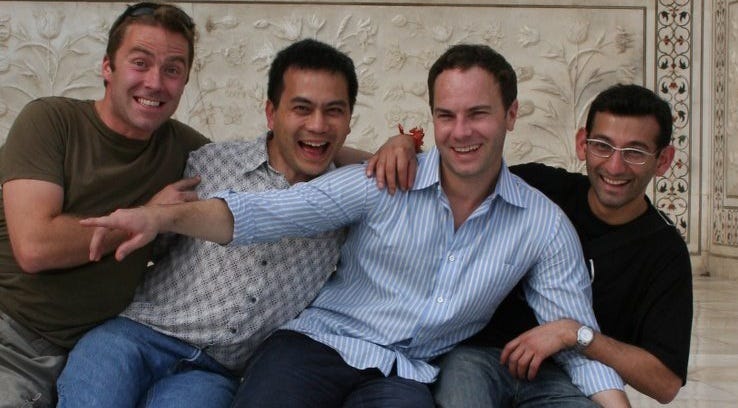Age of Product’s Food for Thought of November 15th, 2015 covers: Sequoia’s unicorn scouts, lessons learnt from passing on Twitter, Agile Clinic, failure helps creativity, Eric Ries on Lean Startup, how to hire a product manager, the story of Shazam.
(via Medium): Happy 10th Birthday to HTHAPM

HTHAPM was mis-titled. It’s really an answer to the question “what is a product manager?” A decade ago, there were a hundred different answers depending on who you asked.
In the early hours of June 14, 2005 I published a blog post, one of hundreds I’d written. I thought I was sharing a few thoughts to my friends. As it turns out, I was writing the first line of my obituary.
Over the past decade, that article, How to Hire a Product Manager, has generated millions of pageviews, been republished in several books, and, I’ve often been told, launched careers in product management. (It certainly helped my own career.)
(via The Wall Street Journal): Unicorn Scouts: Secretive, Sprawling Network of ‘Scouts’ Spreads Money Through Silicon Valley
Scouts invest the money in startups and keep their eyes and ears open for ideas that Sequoia might like. Mr. Calacanis introduced Thumbtack Inc.’s founder to a partner at Sequoia, which bought a stake in the local-services website that has since surged 50-fold, research firm VCExperts estimates.
(via Age of Product): Welcome to the Agile Clinic – Age of Product’s New LinkedIn Group For Agile Change

A refusal to learn for the fear of failure is a catch 22 for all things innovative. I therefore like to use the momentum and invite you to participate in a new LinkedIn group — the Agile Clinic — that shall be focussing on the transition path to embracing failure, addressing all the organization dysfunctions that hinder progress and how to deal with them. For agile peers by agile peers so to speak.
: What I learned from passing on investing in Twitter & Zynga — & saying yes to Uber & Thumbtack
It took me five years, but I’ve learned what the two most important factors are in the success of an angel investor. It’s not being smart, it’s not being diligent, and it’s certainly not being a visionary.
Which leads me to “Jason’s Law[s] of Angel Investing,” which states:
- “You don’t need to know if the idea will succeed — just the person.”
- “Your success is correlated to the amount of time you give to founders.”
(via BBC News): Viewpoint: How creativity is helped by failure – BBC News
A design college in the United States has just started a new exhibition about creativity, which will run till January. It is called "Permission to Fail". The curator asked a group of 50 prestigious designers and illustrators to send in their mess-ups, rough drafts and preliminary sketches so that they could be put on display.
(via First Round Capital): Indispensable Growth Frameworks from My Years at Facebook, Twitter and Wealthfront
In short, Johns believes that startups who have an established finance group but a fledgling — or non-existent — growth team have put the cart before the horse.
Finance owns the flow of cash in and out of a company. Growth owns the flow of customers in and out of a product.
(via Andreessen Horowitz): A16z Podcast: Beyond Lean Startups
What began as a scientific approach to creating and managing startups has now become a worldwide movement for companies of all sizes — and for creating (or rather rediscovering) entrepreneurs in all places.
(via Medium): The Story of Shazam: The Startup Days

The story of Shazam is one of pure innovation, foresight, and friendship. In 1999, Chris Barton dreamed of a seemingly impossible solution to ambient music recognition and created the team — including friend Dhiraj Mukherjee, classmate Philip Inghelbrecht, and engineer Avery Wang — to make it a reality.
“The number one determinant of entrepreneurial success is persistence. If you are not prepared to go to superhuman levels that are beyond rationality to realize your dream, then your chance of finding success is virtually zero.”

